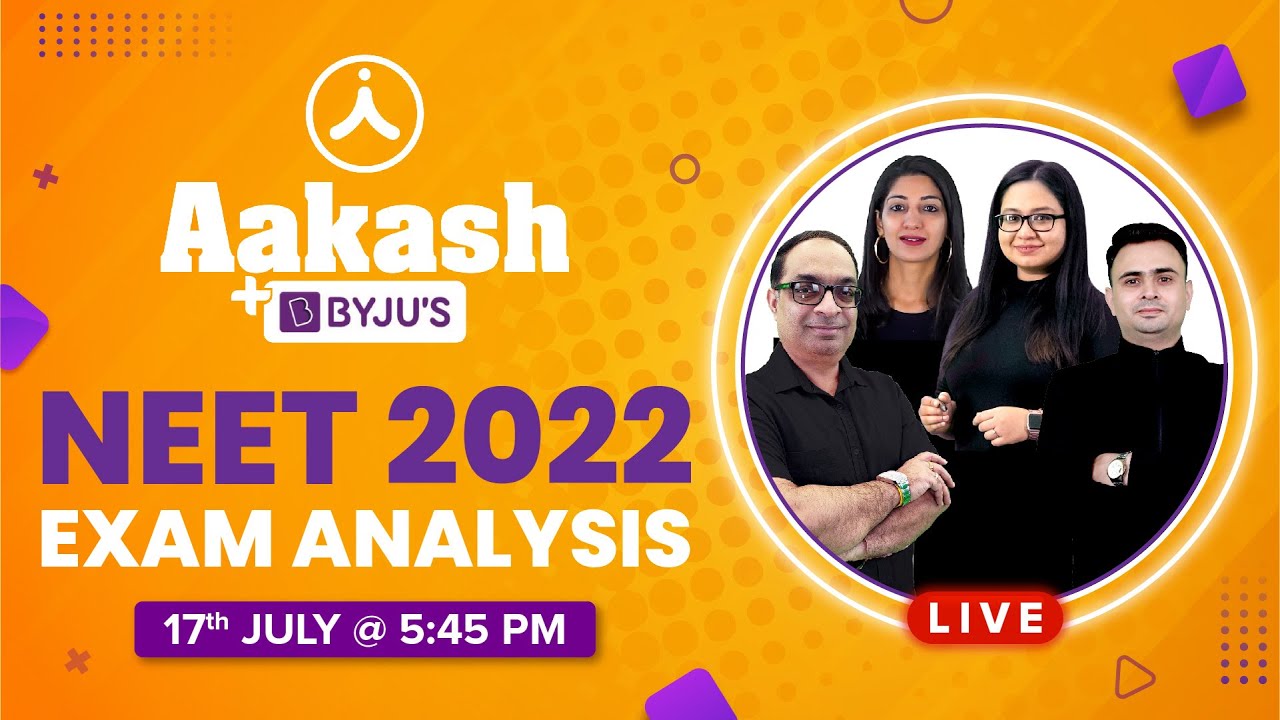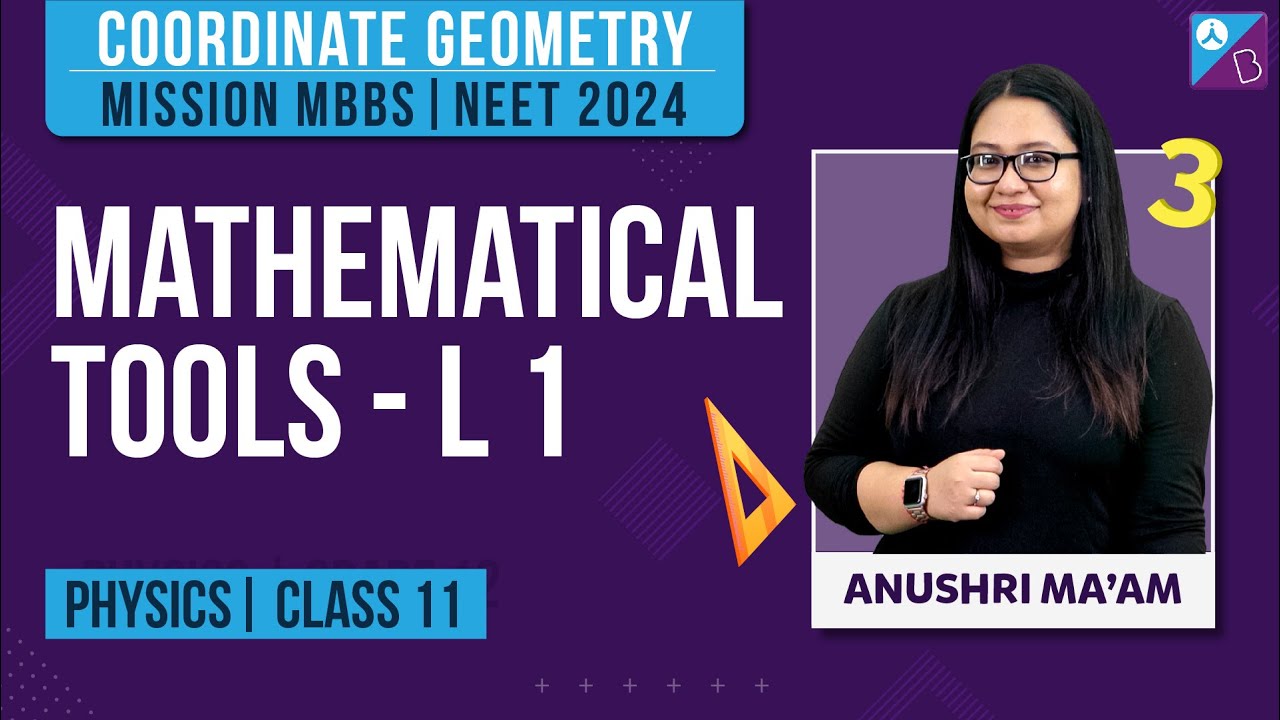Arguably, the Physics section of NEET seems the most intimidating section of all. Often, we observe students looking up the internet seeking assistance to crack the NEET Physics section, and it is a concern that has always prevailed.

One of the first steps towards learning NEET Physics is that aspirants must steer clear of the myth that preparation for Physics is a Herculean task, but it is not. If you observe the recent previous years’ trends, an increasing number of students have been performing exceedingly well, scoring out of out in the Physics section. So, it certainly is possible to ace NEET physics and answer all the 45 questions correctly.
Why scoring in NEET Physics is important?
We all know, 45 questions appear in the Physics section of NEET; a total of 180 out of 720 marks belong to the Physics section. Most of the NEET aspirants are inclined towards the Biology subject, Physics being the less preferred subject. So, students mostly tend to master their Biology and Chemistry sections, and do not prioritise Physics as much for its complexity; here is where the catch lies.
Those students who aim to crack NEET with top scores must prioritise the Physics section. It is imperative to score good marks in the Physics section to secure an envious All India Rank at NEET. As per analysis over the previous trends, experts believe that it is the Physics section in which students mostly have incorrect responses being marked. Students here tend to lose out on marks as NEET has negative marking, hence the low scores in most of the cases.
A good score in NEET Chemistry and Biology is not enough to get admitted to prestigious medical colleges across the country. To secure a score above 650, students must have scored exceedingly well in its Physics section. The scope of questions asked in the Physics section ranges from easy, moderate to difficult questions, of which the tricky ones are not as many. To be able to crack any type of question, conceptual clarity is the key.
All in all, one must prioritise the Physics section of NEET as it is the rank decider section. This is because solving NEET Chemistry and Biology sections can be done by all, but only a few manage to ace the Physics section. It could be you, and here is where the difference lies between you and others, giving you an edge over others. If you intend to be a top-rank holder, strengthen and master your NEET Physics section.

Strategy to Prepare for NEET Physics: 6-Step Guide
Most of the medical aspirants are medical enthusiasts, but the fear of mathematics and number crunching haunts them, and they try to avoid related subjects which deal with digits. As a matter of fact, the first chapter covered in the NEET Physics syllabus evokes their fear of reappearance of mathematics.
It is at this very juncture that students give up. However, you must understand at this level that even though both Physics and Mathematics look similar, they are different from each other. Physics is all about understanding concepts and then approaching problems.
Recommended Videos:


In this article, we have compiled important pointers, a 6-step guide that is deduced by academicians at BYJU’S to be followed by students as it helps them strategise an effective plan to crack NEET Physics effortlessly. Read on.
Step 1 of 6
Study Material – How to study Physics for NEET?
NCERT textbooks for NEET must be mastered. Apart from that, refer to related sources for NEET for widespread coverage.
Apart from NCERT, some other sources to refer to are:
Best Books for NEET Physics
- Concepts of Physics by H. C. Verma
- NCERT (Textbook) Physics – Class 11 & 12
- Objective Physics by D. C. Pandey
- Fundamentals of Physics by Halliday, Resnick and Walker
- Problems in General Physics by I. E. Irodov
It is vital for students to wisely and carefully pick their sources for NEET Physics after mastering NCERT content. You may also refer to other sources to practice questions to be able to apply understood concepts on more and more questions.
Step 2 of 6
Strategise – How to study Physics for NEET?
Know that you know what NEET is all about and have an idea of the resources to refer to, get on to draw up a plan. Start making strategies, experiment with different tactics and come up with the best that suits you. Ensure to stick to your plan and stay consistent.
One of your strategies must be prioritising chapters as per their importance. A good idea of the importance of concepts can be deduced by their appearance in the previous years’ question papers. For your reference, we have provided a list of important topics from NEET 2021 and NEET 2020 as per their weightage in the question paper. Take a look:
NEET 2021 Question Paper – Physics
| Chapters | Questions Breakup |
| Modern Physics & electronics | 8 |
| Magnetism | 7 |
| SHM & wave | 3 |
| Optics | 4 |
| Electrostatics and electricity | 11 |
| Heat & thermodynamics | 4 |
| Mechanics | 13 |
Important Topics – NEET 2020 Weightage – Number of Questions Asked
|
Class |
Chapter name | Number Of Questions |
| Class 11 | Mechanics | 12 |
| Heat & Thermodynamics | 5 | |
| Waves | 1 | |
| Class 12 | Magnetism | 6 |
| Modern Physics | 8 | |
| Electricity | 9 | |
| Optics | 4 |
Step 3 of 6 (Most Important Step)
Understanding Concepts – How to study Physics for NEET?
Conceptual clarity over problem-solving
If there is any step mentioned in this article that should not be missed at all, it is this one. Prioritise this approach in your strategy before anything else. Physics is all about understanding concepts and then their application. If you aim to ace NEET Physics, then conceptual clarity is a must, no two ways about it.
One of the most common blunders that students tend to commit is solving as many questions on Physics, finding shortcuts, and then somehow they try to arrive at learning the concept. Students must stop doing this right away!
The correct approach towards learning Physics is, understanding the concepts first, and for this, you can take as much time you want but prioritise this activity. Comprehend the basic topic. Once you have understood a concept fully, then approach solving problems and not the other way around.
Step 4 of 6
Formulate notes – How to study Physics for NEET?
Make efforts, take time out exclusively to prepare your own notes for all the 29 chapters covered in the NEET syllabus for Physics. List down all the important formulae and other related listings as per your strategy. Let the notes be as crisp and concise as possible. It makes learning effective and repetitive this way, providing a superficial revision of all topics critical, just at a glance.
Step 5 of 6
Solving previous years’ question papers – How to study Physics for NEET?
There is no denying that nothing can beat this resource for exam preparation – previous years’ question papers. It is the ultimate means on which students rely for effective NEET preparation. Solving question papers from previous years for NEET Physics gives students a complete insight on how tricky or easy the questions are, how a question from a concept has been asked, and how best a student can optimise time to solve questions in the best possible way under the stipulated time.
Focus on solving as many question papers as possible to broaden your horizon, however difficult the question may seem. There is no substitute for a well-practised hand in the examination hall. After having solved enough question papers, start solving questions chapter wise to ensure nothing has been missed out.
Additionally, you may also refer to some JEE question papers and solve Physics questions from there, as raising the bar high will cause solving NEET questions for Physics a cakewalk for you in the exam hall.
Finally, review your mistakes after solving each question paper, identify your loopholes and work on them. After all, that is the whole intention of solving previous years’ papers.
Step 6 of 6
Time management – How to study Physics for NEET?
Any student who has mastered these 3 factors – time, speed and accuracy with conceptual clarity, of course, is sure to perform exceedingly well in NEET. Regular practice is an absolute must, to gain mastery over these 3 decisive factors.
This was a simple yet easy to follow 6-step guide to ace NEET. We have also listed down a few more points that students can make a note of.
Bonus points
- Concept-building: Make efforts to build upon concepts
- Pay attention to the details – theoretical knowledge, important formulae, conversions, accuracy
- The syllabus for NEET is vast. Try interlinking concepts and make learning easier. Questions, at times, are asked from two different concepts that are interlinked but appear in different chapters in the syllabus
- Follow a structured format so that you do not digress and miss out on anything important
To conclude, a key reason why students fail to secure a good rank is low scores in NEET Physics, which predominantly is due to a lack of conceptual clarity. In this article, we have emphasised and drawn the attention of students towards sound knowledge of concepts, as it is imperative if you aim for a competitive score.
So plan your actions, gain conceptual knowledge and clarity, apply learnt concepts by solving enough problems and practice enough to gain mastery over the time, accuracy and speed aspects.
Visit BYJU’S NEET for related articles.
More resources here:
| What is the weightage of Physics in NEET 2023? |
| NEET Physics Syllabus |
| Physics Formulae For NEET |
| NEET Study material |
| NEET Notes |
Recommended Videos
Functions – Mathematical Tools for Physics Class 11

Trigonometry – Mathematical Tools for Physics Class 11

Differentiation – Mathematical Tools Physics Class 11

Application of Derivatives & Indefinite Integration Class 11 Physics

Comments